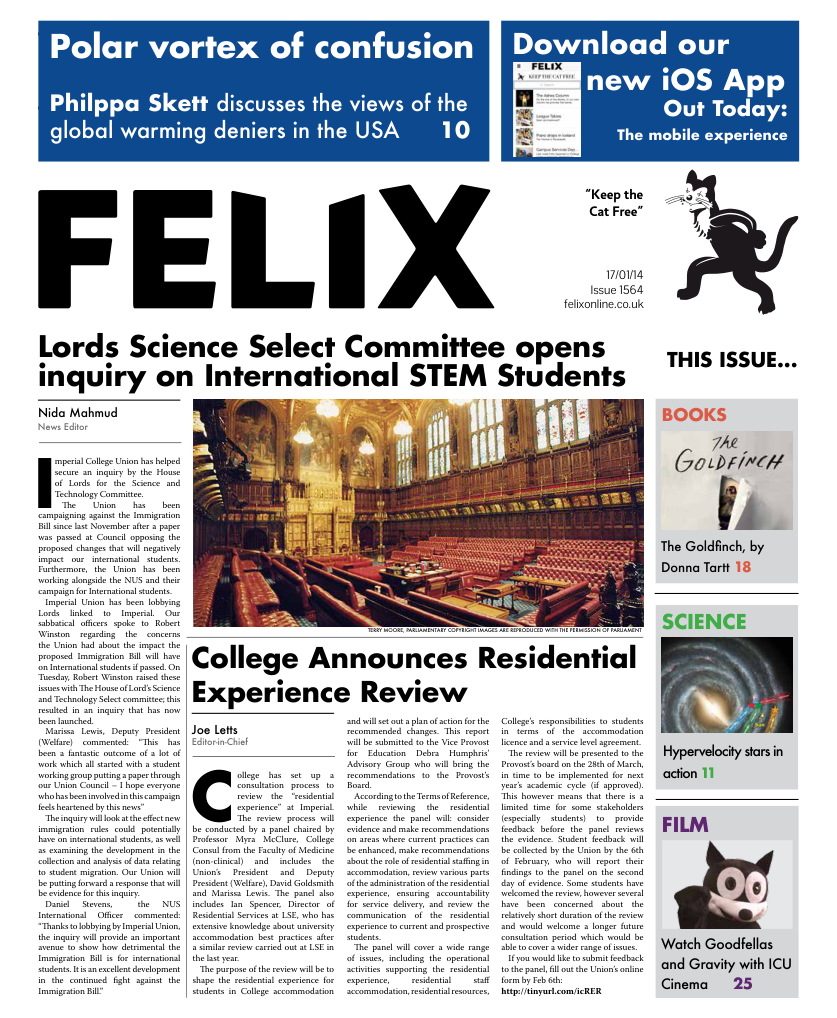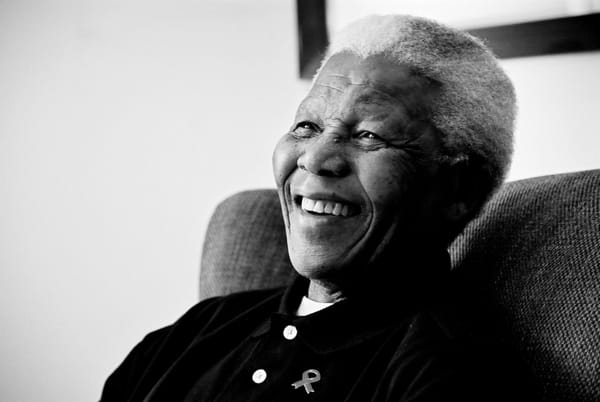Brown Report Published
Examining the recommendations of the Brown Report...

On 14th April 2013 the British Union for the Abolition of Vivisection (BUAV) presented Imperial College London with a report that accumulated a list of various allegations of misconduct concerning animal experimentation. The report contained a video produced by the undercover investigator, which BUAV released to the public, which purported to demonstrate a number of instances of poor animal welfare practices. As a result Imperial College came under national scrutiny, which can be seen on the comments on College’s social media pages. The public outcry, included Morrissey and Brian May, called for an immediate independent inquiry.
The BUAV believed the report provided evidence for a violation of the Animal (Scientific Procedures) Act 1986 (as amended to incorporate the changes brought in the by the European Directive, 2010/63/EU). The act insists that institutions acquire a personal license, provided by the Home Office, in order to practise animal research. The license sets out the limitation of each research project according to its categorised severity. The report is thought to have highlighted a number of instances of poor animal handling that includes: exceeding severity limits; poor monitoring and staff cover; poor surgical practice and anaesthesia; administration of analgesics; approaches to the killing of animals.
In response, the Home Office began an enquiry in the allegations. Imperial College announced “immediate actions” and invited Professor Steve Brown, Medical Research Council’s Mammalian Genetics Unit, and Harwell to chair an independent committee to investigate and assess the approach to animal care and welfare across the College. Though the college insisted the committee was independent, the Chief Executive of the BUAV Michelle Thew accused this investigation as a “white-wash.” The organisation claimed that Professor Steve Brown was “a well-known and strong supporter of animal research, heading the Medical Research Council (MRC) unit which manipulates mice to predispose them to develop all manner of diseases, but the MRC actually funds animal research at the Imperial College.” The organisation and their supporters (including Brian May) petitioned for a different, independent inquiry.
The committee convened 6 June, 2013 and set out to provide a report that described College’s best practises regarding animal research, including those that had room for enhancement; delivered detailed recommendations for improvement, and attempted to provide potential solutions, where possible. The committee was clear that it would not investigate the specific allegations made by BUAV. The role of the committee was to examine all aspects of animal experimentation at the College facilities including areas such as ethical review, operations, compliance, training and management.
The committee took a mixture of approaches which included interviews of Imperial personnel, the examination of relevant documents requested and a visit to the animal facility described in the BUAV allegations. The committee found that husbandry and maintenance of facilities was carried out to a high standard. Moreover, the animal house staffs were supportive, committed, engaged, and willing to do more in terms of developing new approaches to animal welfare.
The committee however concluded that Imperial’s Animal Welfare and Ethical Review Body (AWERB) was not fit for purpose due to a lack focus on the 3Rs of animal research (the replacement, reduction and refinement of animals in research) and lack of involvement of scientists. The committee recommended a more rigorous process that takes these shortcomings into consideration. AWERB are required by all research institutions in the UK. The body has a wide set of responsibilities including: ensuring animal welfare, reviewing the use of animals in experimentation, and discussing the 3Rs. The implementation of these recommendations will be critical for Imperial to reach the standards in the 3Rs.
It was found that the local AWERB process, which was conducted electronically, failed to provide a forum for discussions and to deliver improvements in the 3Rs. The local AWERB also failed to engage scientists on a broad basis across Imperial, and thus there was very little opportunity to discuss and take a substantive and active role in reviewing approaches to animal experimentation. The committee recommend that the local AWERB process be reformed with the creation of two standing committees, one at South Kensington/St. Mary’s, the other at Hammersmith. This reformed committee should be compromised of key staff from animal facilities along with scientists, and should meet regularly to review project applications with the scientists concerned.
The committee also recommended reforms for the central AWERB process, establishing a new role for this forum. The central AWERB should receive reports from the local AWERB and discuss strategic and operational issues on animal welfare. The central forum is to be chaired by a senior faculty member such as a Dean. Both local and central AWERB meetings should be wider advertised and anonymised minutes should be made available.
The committee recommended an increase in staffing levels and a reduction on the reliance on agency staff. They also recommended staff monitor research labs at least once daily, which will contribute to competency reports of license holders.
The BUAV video raised questions on the training of researchers experimenting on animal research and whether the College’s animal welfare officers were performing their jobs effectively. The committee’s training and competency assessment found that the training was “ad hoc” and the mechanisms for sharing information currently in place were not effective. The committee recommended a “significant increase” for the resources allocated to training and competency assessment and suggested that this be accompanied with the appointment of a senior Named Training and Competency Officer (NTCO).
The report studied the culture, leadership and management of animal research at Imperial, recommending an annual College prize to the team that make outstanding commitment or contribution in the development of the 3Rs. In addition, the committee recommended the creation of a new senior directorial role that will take overall responsibility for the delivery of bio-services at Imperial.
Imperial College responded by promising “to move quickly to implement the recommendations” and stated that there is “a significant scope for improvement in aspects of the operation, management and oversight in order to become a world leader in animal research.”
A separate inquiry, undertaken by the Home Office, is expected to be published soon.








